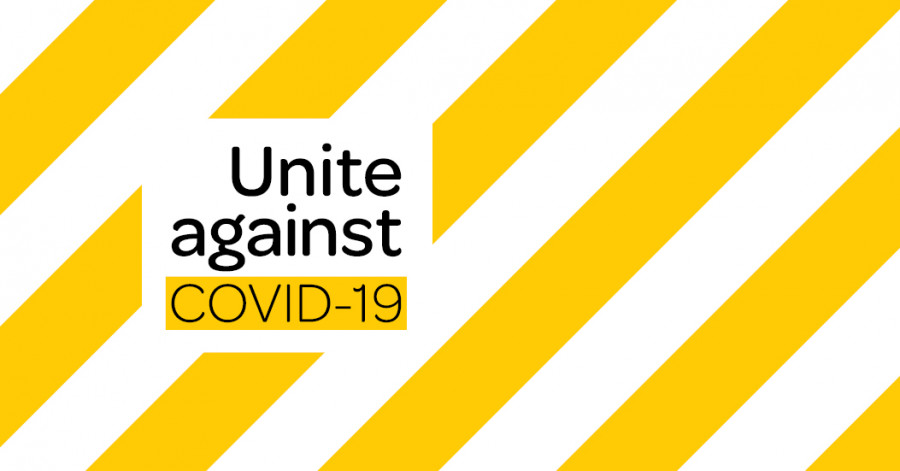The first time, indeed the only time I have dyed my hair blue, I was a 39 year-old mother of 3 with an ailing husband. Two months previously, Warwick’s diagnosis with an aggressive form of leukaemia had come as a shock: without treatment he has a month to live. The seismic shift that understanding wrought in our plans, our business and our family life seems prescient today given how many families reel under similar shocks within this current Covid19 crisis.

Back in April 1997, it takes just 4 days to re-organise our lives. Warwick and I are only days away from travelling with our 3 girls to the UK to spend time with my mother but after the diagnosis, travel goes on hold. In fact most things go on hold; priorities shift overnight and within days we live in Auckland, the girls are attending new schools, while I accompany Warwick to seemingly endless hospital treatments and blood transfusions.
Now, 2 months on, I am exhausted. Here we are crammed into an elderly 2-bedroom flat in Auckland. In between tending to sheet changes for my weakening husband’s night sweats, checking on our business and attempting to keep family life together for our daughters aged 8,9 and 10, I catnap on cushions on the lounge floor. It is a lonely time, buoyed up by the love of my sister-in-law and 2 close friends, but we are far from home and I’m not clear what the future holds.
What turned my hair blue was a frequent query on the phone and from casual acquaintances, “Hi Jane, how is Warwick?” Only in hindsight does the reasoning behind my bright blue hair become clear; at the time I surprise even myself! Four weeks later I feel hugely relieved how the blue colour is all but washed out, lest I be deemed frivolous. Back as a family in Paihia I walk with others to the stone church for Warwick’s funeral.

That well-intentioned question, “How is ….(absent loved one)?” seems to me just as inappropriate in today’s challenging lockdown absences as it was then. I’m want to share how I reacted back then before I suggest what I would have found more helpful.
The ‘How’s Warwick?’ query hits my exhausted nervous system like a red hot arrow. My mind races through a series of possible responses. ‘Am I expected to assuage their fears (I have enough of my own) or is the enquirer checking whether I am conversant enough with what is happening to my husband to make good decisions? Are they assessing whether they need to help him or curious about treatment for leukaemia? Do they expect me to explain hospital processes? Or perhaps the enquirer is hopeful Warwick was now fine, in which case will I disappoint them if I am honest about how desperately sick he is? Whatever it was they are looking for, I feel my capacity even further drained in attempting to respond with care.
I didn’t know then what I know now. In my exhausted state from multitasking school, business and caregiver commitments, my instinctive move was to change my hair colour to a striking shade of blue! “Can’t you see me?” I wanted to say. “Please don’t ask me to return me to that place where I feel so fearful, powerless over what happens to my husband, and scared for my family’s future. Isn’t it enough that I spend so much time with that pain in the sleepless early hours, in the hospital waiting room and while while our kids play?” Back then I didn’t know how to set my boundaries, to explain to others, “Please don’t probe that sore unless invited!”
If it wasn’t helpful to answer that question, what did I long for? It’s simple really: I wanted someone to ask how I was. To ask, “How are you, Jane, given that Warwick has been sick for so long?“ That would have worked for me: I’d have felt loved and cared for and been able to respond about things that I could control. I was managing as best I could to meet the family’s needs, what wasn’t going so well was meeting my own. What I needed was recognition, to know others had faith in me, I didn’t want to be a powerless victim looking for rescuing, I just wanted to know I had allies who I could level with, who trusted me and understood how I was finding things. 
In this new Covid19 era, with my daughters far away, I recognise the same sense of powerless over caring for their health and wellbeing. Yet this time around, when someone asks me, “How’s (absent loved one)?” which has happened several times already, I feel better equipped to deflect the arrow. To care for myself and honour their intention too, I simply request that they reframe their question: “It works better for me if you ask me how it is for me with ….(loved one ) sick and far away. Would you ask me that instead?”
So far it seems to be working! I’m able to stay out of a black hole of powerlessness and rampaging fear; instead as the person listens with understanding and love about how it is for me and how I feel, it allows me to order my thoughts. Once I can acknowledge how it is for me, I discover ways to care for myself and to reach out to others for what I need, while the caring connection of real friendship deepens between us. ‘He waka eke noa’ /we are all in this together can be felt in the space between us, virtual though it may be. Indeed, this sense of allies who understand how it is for me is currently so affirming, I don’t think I’ll even dye my hair blue.
Leave a comment